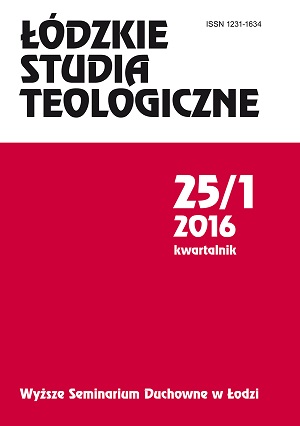La poesia di Giovanni Scoto Eriugena e i suoi aspetti teologici
The poetry of John Scotus Eriugena and its theological aspects
Author(s): Filippo ColnagoSubject(s): Poetry, Middle Ages, Philosophy of Middle Ages, Philosophy of Religion, Hermeneutics
Published by: Wyższe Seminarium Duchowne w Łodzi
Keywords: John Scotus Eriugena; Medieval Poetry; Medieval Theology; Medieval Philosophy; Pseudo-Dionysius; Maximus the Confessor;
Summary/Abstract: The poetic works of John Scotus Eriugena, dating about from 855 to 877, is one of the lesser known works of the Irish philosopher and theologian, renowned for his treatises De divina praedestinatione and Periphyseon or De divisione naturae and for his Latin translations of Greek patristic works (Pseudo-Dionysius, Maximus the Confessor and Gregory of Nyssa). In this article, after the presentation of some synthetic elements on the figure of John Scotus and his poetic corpus, the major theological aspects of Eriugena’s poems are analysed. From the poetry, often not easy to interpret, the theological depth of John Scotus comes to light. In fact, beyond a concrete occasion, usually liturgical, which originates them, the carmina develop an articulated meditation on themes such as the relationship between the divine Persons in the Trinity, the creation of the world and of man, the incarnation, death on the cross, descent into hell and resurrection of Christ as the fulfillment of the Son’s inhumanatio for the resulting human théosis, the ascensus of the soul toward God and eschatology. The poetry is thus for John Scotus a special way of doing theology, versifying his rich and complex view about God and man.
Journal: Łódzkie Studia Teologiczne
- Issue Year: 25/2016
- Issue No: 1
- Page Range: 143-170
- Page Count: 28
- Language: Italian

